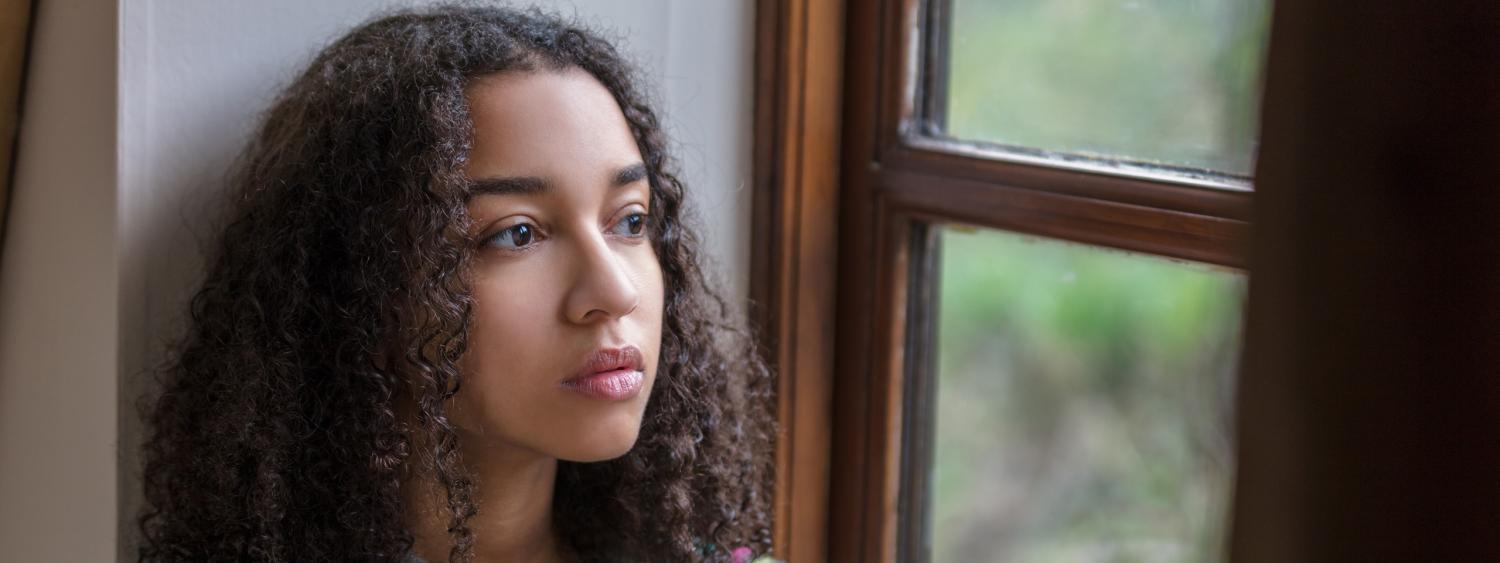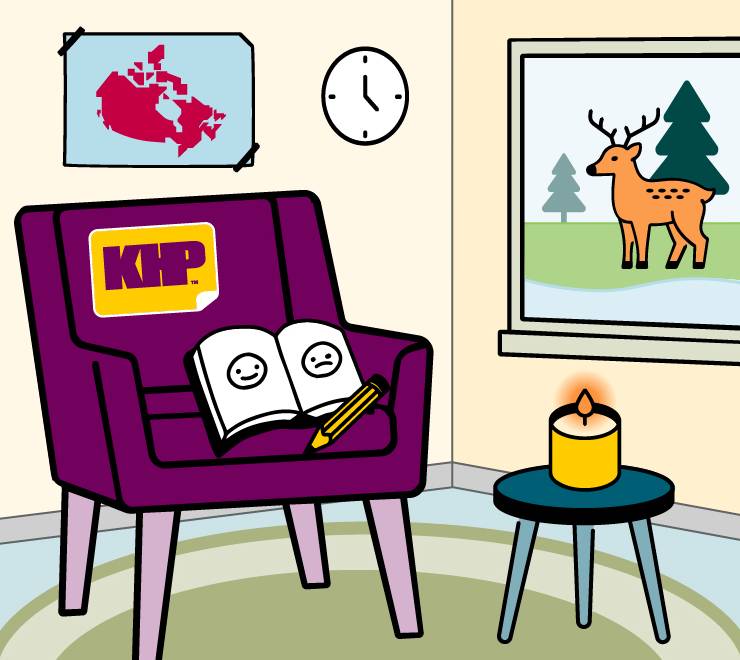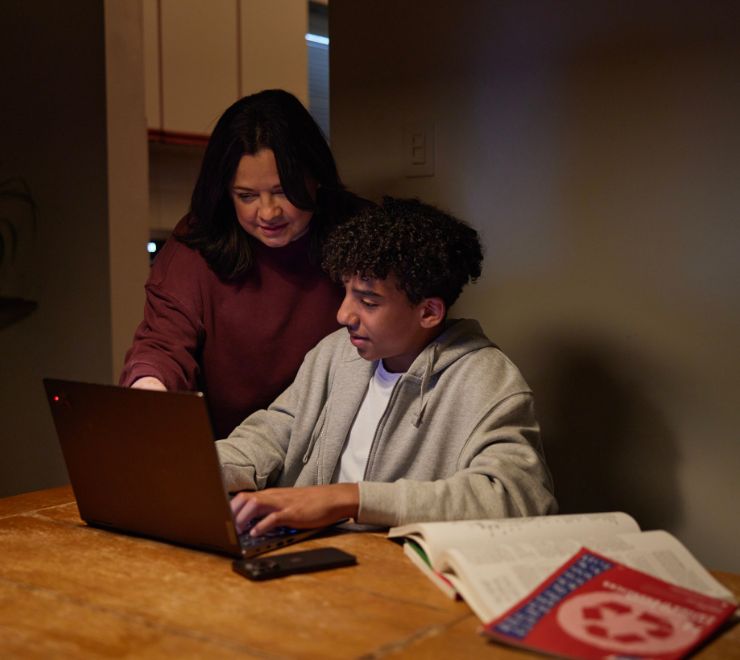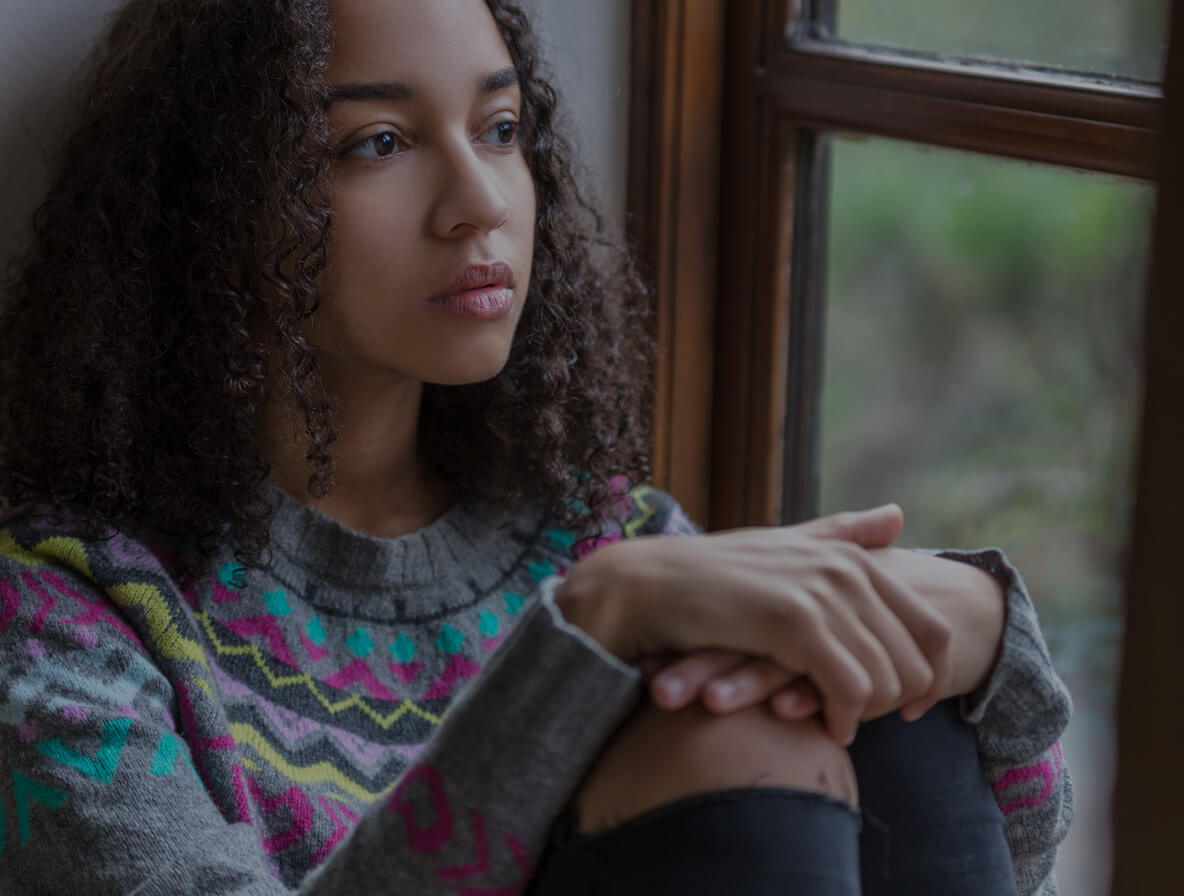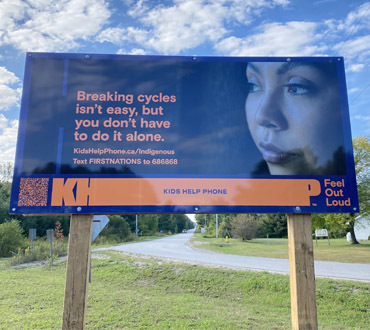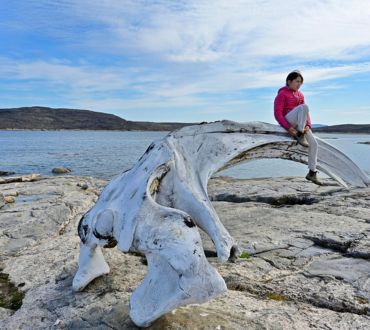Kids Help Phone is here for you during the COVID-19 pandemic. Emergency services and child protection services are still available across Canada and mobile crisis support is also available in some areas. No matter what, your safety is a priority — it’s important to find ways to protect yourself, even while practising physical distancing.
Sexual abuse involves unwanted sexual activity which can, but doesn’t always, include touching.
Sexual abuse is when an adult involves a young person in any sexual activity, or uses sexual acts as a way to demonstrate power or authority. Sexual abuse often involves physical contact, but it can also happen without touching.
No one deserves sexual abuse — it’s a crime, it’s never the victim’s fault and it can cause confusing feelings. No one has the right to make someone do something that they don’t want to do.
What kind of touching is considered to be sexual abuse?
Sexual abuse can include unwanted touching of the breasts, vagina, penis, anus and other areas. Sexual abuse can also include being forced to have sex with someone (known as rape) and being forced to touch someone else in a sexual manner. The abuse can be done by someone who seems trustworthy, someone older or someone who has authority or power in someone else’s life.
Is it sexual abuse if there is no touching?
Yes, forcing someone to look at a naked person, picture or video is sexual abuse, even if there is no touching involved. This includes being forced to watch someone touch themselves in a sexual manner.
I’ve been sexually abused
If you’ve been sexually abused, it’s important to know that it’s not your fault. Whether it happened recently or in the past, there is help available.
Common reactions after being sexually abused
Being sexually abused can be a frightening and confusing experience. Sexual abusers often manipulate their victims to make them feel helpless and alone. You may also experience:
- sadness or depression
- inability to focus, especially at school
- nightmares
- anger
- guilt
- shame
- fear
- anxiety
- wanting to self-injure
- using drugs and alcohol to escape
All of these feelings are common reactions, but if you experience others, that’s OK, too. There is no wrong or right way to react to sexual abuse.
Things a sexual abuser may say
Sexual abusers usually make up excuses for their behaviour. They do this to take the blame off of themselves and to place the blame on their victim. They may say:
- “It’s OK.”
- “It’s our secret.”
- “I can’t control myself.”
- “You wanted this to happen.”
- “It’s normal.”
- “You’ll be in trouble if you tell.”
- “No one will believe you.”
It’s important to remember that these statements are lies used by the sexual abuser to manipulate their victim.
Getting help
Help is available for people who experience sexual abuse. Telling someone is the first step to making it stop. You can always call a Kids Help Phone counsellor at 1-800-668-6868.
Who can I tell if I’ve been sexually abused?
You can tell a safe adult if you’ve experienced sexual abuse. You may choose to tell a parent, caregiver, teacher, coach, principal, guidance counsellor or another safe adult. A Kids Help Phone counsellor can help you decide who to tell, and even work with you on how to start the conversation.
How do I tell someone that I’ve been sexually abused?
It can be scary to tell someone about the sexual abuse that you’ve experienced. Here’s how you can approach the conversation with a safe adult:
- Start by saying, “I need to talk to you,” or “There’s something I need to talk to you about.”
- Find a quiet spot, take a deep breath and say, “Something’s happened to me that’s hard to talk about.”
- When you’re ready, explain by saying, “I was sexually abused. I need help.”
- If you know how you want the person to help, continue by saying, “I want you to…”
The safe adult you tell will likely determine the next steps. It may not be easy to talk about what happened to you, but once you start talking, you take a big step toward helping yourself.
If you’re not ready to speak to someone about the sexual abuse in person, you can try writing a letter or email.
What happens next?
It takes courage to talk about sexual abuse. The safe adult you tell may react in different ways, but remember that it’s not your fault and that you’re not responsible for how someone reacts to your experience. The safe adult should help, but if not, it’s important to tell another safe adult.
Ways to heal
You may feel like you’ll never be free from the abuse, but there are steps you can take to help yourself heal. Healing takes time — be patient and take it day by day. You can:
- Write in a journal: writing your thoughts down can help you answer questions such as how you’re feeling today and how you want to feel tomorrow.
- Take a walk: find somewhere safe to walk during the day. Go with a friend, if possible.
- Draw, paint or sketch: being creative and putting your feelings on paper can help you heal.
- Hang out with friends: having fun with your friends will remind you that people care about you, a lot.
- Be kind to yourself: It’s important to remember that what happened to you isn’t your fault. Healing can take time, and it’s ok to feel sad or upset some days.
- Get support: you may start to see a counsellor who can help you work through your feelings. You can also talk to a Kids Help Phone counsellor at 1-800-668-6868.
